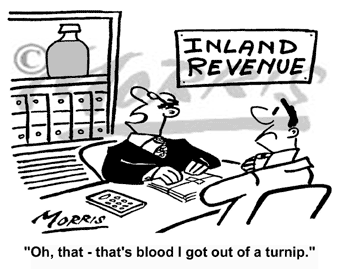WASHINGTON (AP) - Having missed one deadline already, states still face an enormous challenge in putting qualified teachers in all major classes, a federal review says.
Some states are in much better shape than others, the Education Department said Wednesday. Most meet only some criteria in required new plans. Four fail altogether.
Under the No Child Left Behind law, states were supposed to have highly qualified teachers in every core academic class by the end of the last school year. None made it.
So the Education Department demanded new state plans. They were to include details on how states would improve their teaching corps and ensure fairness for poor and minority children.
The federal analysis of those plans yields a mixed picture.
Most states got credit for showing serious effort. Yet a few were ordered to start over. Every state was given specific recommendations and told to follow them.
...
Meanwhile, for parents and students, more patience will be required. The new goal is 100 percent compliance by the end of the 2006-07 school year, but some states may be years away.
Most of the states -- 37 of them, plus the District of Columbia and Puerto Rico -- met only some of the criteria. They must submit new data or plans this fall or risk facing penalties.
Four states failed altogether: Hawaii, Missouri, Utah and Wisconsin. They must submit new plans and undergo monthly auditing of their teacher quality data, the department says.
The remaining nine states got favorable reviews for handing in complete plans and creative ideas about how they will improve. Those nine are Kansas, Louisiana, Maryland, New Jersey, New Mexico, Nevada, Ohio, South Carolina and South Dakota.
South Carolina, for example, was praised for paying incentives to teachers in high-need schools. Louisiana was credited for collecting clear, meaningful data on teacher quality.
All the plans were examined by outside review teams, mainly state officials.
"We're pretty hopeful that if states seriously implement these plans -- and we intend to monitor that -- then change will happen," said Rene Islas, chief of staff for the department's elementary and secondary education office.
The promise of better teachers is a huge part of President Bush's education law. Every new development, though, underscores how daunting the mission is.
The law defines "highly qualified" teachers as those who have a bachelor's degree, a state license and proven competency in every subject they teach. It is often regarded as a minimum qualification, because it requires teachers to know what they teach.
Many teachers find the edict to be well intentioned but poorly defined. It does not measure attributes parents like, such as a teacher's creativity or ability to reach students.
The law also orders equity, a point gaining more attention of late. Poor and minority kids are not supposed to have an unfair share of unqualified, inexperienced teachers.
The Education Trust, which advocates for underprivileged children, says states largely ignored the provision in their new plans. The group issued its own analysis last week. It found that most states are doing little to fix inequities in the teaching force.
Department officials acknowledged Wednesday that equity was the biggest snag for states. Many states couldn't provide data on the quality of teachers serving poor and minority kids.
The department can withhold money from states that fall short on teacher quality.
Based on a separate review earlier this year, seven states, the District of Columbia and Puerto Rico face the loss of federal aid if they don't improve their compliance.
Those states are Idaho, Iowa, Missouri, Montana, Nebraska, Virginia and Washington.
I just think it's fascinating to stand back and watch as districts scramble to find teachers -- warm bodies, even -- to cover burgeoning classrooms... there just aren't enough of these warm bodies who have teaching certificates. Start paying teachers a little better, and you might eventually have a few more people choosing an education career. For now, however, you're requiring a professional-level degree from someone you're paying minimum wage. I dare you to find enough "highly qualified" people in the country who will sign up for this.
Loss of federal funding? Hoo! We should be so lucky... except if the Feds withdraw their funding of Big Brother Education, they won't give us back our tax dollars that they took away. I'd be all for the abolishment of the Dept of Ed, especially if it meant that people got to keep more of their tax dollars. They'd spend more, which would fund local sales taxes, which would fund local schools.
As for the ninnies who scream that poor districts would be left behind, I would like to mention that dollars spent per pupil does not equal better test scores.
It's a gigantic house of cards, and I predicted some time ago that it would eventually cave in under its own weight. That may be happening.


No comments:
Post a Comment